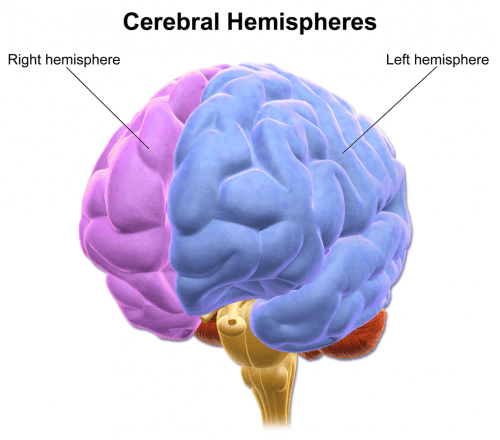The left and right lobes of the brain play different roles in processing humor - and to laugh at jokes people need both

Jokes based on puns are controversial jokes. Various writers claimed that they were "jokes of the lowest quality", but others, including Shakespeare, actually used them a lot. as per A recently published study, it seems that even the brain does not have a single opinion about such jokes. The results of the study show that the left and right lobes play different roles in processing verbal jokes and that the success of such jokes depends on the communication between the two lobes.
To see how the brain handles this type of humor, researchers from the University of Windsor in Ontario, Canada, presented study participants with a word related to a verbal joke. They presented the word only to the left or right visual field (related to the right or left brain lobes, respectively), and then analyzed the subjects' reaction times in each of the conditions to determine which of the lobes was dominant. according to Laurie Buchanan, professor of psychology and one of the two authors of the study, "The left lobe is the linguistic lobe, and therefore it is the one that processes most of the linguistic aspects of the joke, while the right lobe comes into action a little later" and reveals the double meaning of the word.
This interaction allows us to understand the joke, because verbal jokes are a play on words that fits the basic formula on which humor depends: expectations + something that doesn't add up = laughter. In verbal jokes, which take advantage of the multiple meanings of words, the context of the sentence prepares us to attribute a certain meaning to the word, and this action takes place in the left lobe. The humor is revealed afterwards, when the right lobe reveals to us the other and unexpected meaning, thereby evoking what Buchanan called "reinterpretation following surprise".
The study's conclusions are consistent with previous findings on the link between damage to the right lobe of the brain and the lack of humor in some people. These people understand the meaning of jokes, but "they don't think these things are funny anymore," says Buchanan. She hopes that this and other research in the future will lead to rehabilitation treatments that will help such people regain their sense of humor. In conclusion: Verbal jokes are indeed brain fog.

3 תגובות
The last line is really high level
Writers directors playwrights with a developed and sophisticated sense of humor are usually the best.
This is an excellent point to begin research between the right and left lobes.
Autism does not distinguish a sense of humor.